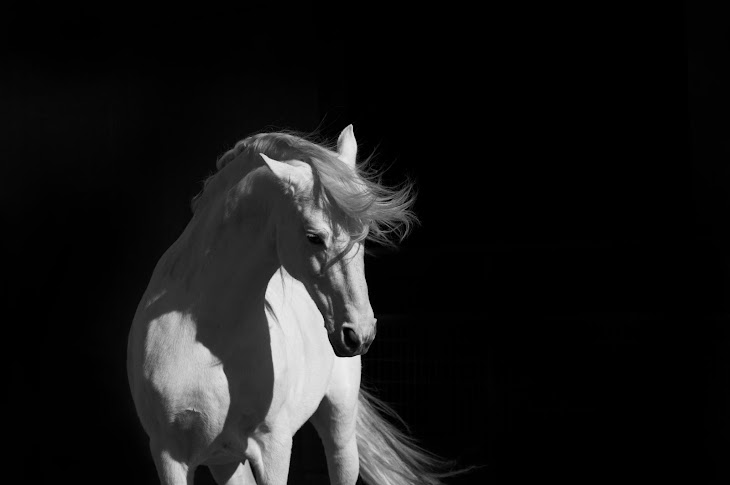Q. Hi! I'm glad I can write to a "forum" like this and get ideas about questions that I have. I've had horses off and on in my life when I could manage it. My husband's job takes us around a lot, so when I need help with my horses it has been with different trainers. I know if you get ten horse people in the room there are ten different opinions, but I do question attitudes. I have had trainers who seem to give a lot of "credit" to my horses, find reasons for behavior, and I have had some who tell me that they need to know I am dominant and everything I want they need to do. What is the balance between these theories?
-Teresa
A. Thank you for your question, Teresa. Actually, you can find quite a bit of continuity among horse owners and trainers if they have studied horse behavior not only from first hand experience, but by reading some of the excellent texts that have been published. Two books that you should read are INSIDE YOUR HORSE'S MIND, by Lesley Skipper, and MY HORSES, MY TEACHERS, by Alois Podhajsky. Both portray an educated and realistic view.
There is a middle ground when working with horses, and I have seen both extremes. Rewarding your horse whatever he does can lead to undesirable behavior. Forcing your horse to do something he does not understand or cannot physically do at the time is also quite incorrect and, unfortunately, not all that uncommon. Most cases of insubordination in horses are caused by not understanding the command, being afraid or uncertain of the rider, or not being able to physically or mentally carry out the exercise.I will give you two examples. I also will be happy to email you about your specific questions.
A foal is being taught ground manners. For the first time his owner wants him to pick up his feet. He refuses to pick his leg up, and when the owner forces him, he rears and backs up. The owner gets angry, thinks the foal is being bad or stupid, and proceeds to hit him.
Same scenario. The owner understands that a horse's legs are its primary means of survival. To allow a person to take away a leg is a big deal. It is very frightening, and entirely against a horse's nature. This owner strokes the leg and reassures the baby. He may spend 30 minutes playing with the leg and getting it off the ground for a second....five seconds, until the foal develops trust.
This is why your choice of a farrier, especially for your young horses, is so important. Not only must she be skilled and knowledgeable about their feet, but be willing to put in extra time to allow the horse to get accustomed to having its leg taken away from it for longer periods of time.
Horses always have a reason for their behavior. They have no ulterior motives as humans can have. "What you see is what you get". It is up to us to determine the whys. Sometimes it is just not a good enough reason, and obedience has to be expected then and there.
So Teresa, just put yourself as much as you can into your horse's place. It is a fascinating process. Not wanting to go through puddles becomes easily understandable, for example. For all the horse knows he is putting his feet into deep water . It takes a great deal of courage and trust of his owner for a horse to put his feet into a place where he could get hurt. That is what training is all about....the development of trust and understanding in your horse.
Wednesday, June 16, 2010
Subscribe to:
Comments (Atom)


